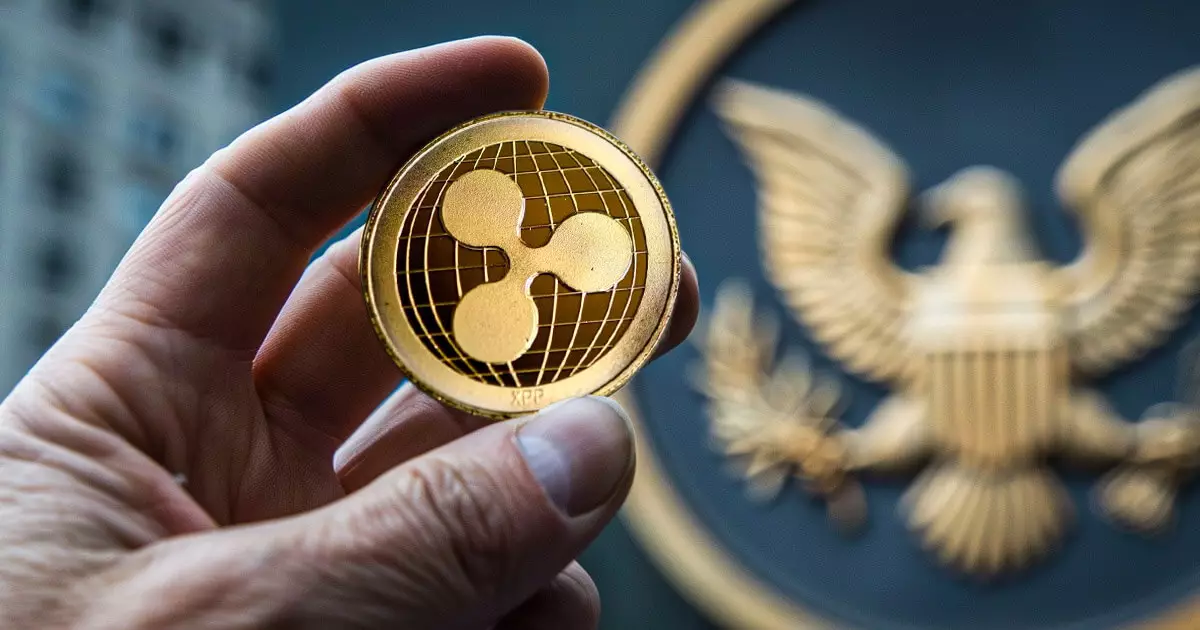The clash between Ripple Labs and the US Securities and Exchange Commission (SEC) has been a prominent chapter in the ongoing evolution of cryptocurrency regulation, drawing attention from investors, legal experts, and industry insiders alike. As legal frameworks struggle to keep pace with the dynamic world of digital assets, Ripple’s recent cross-appeal against the SEC highlights the complexities that continue to evolve around the interpretation of securities laws in the context of cryptocurrencies.
Ripple’s legal predicament stems from an SEC lawsuit filed in December 2020, wherein the governmental body accused the company of illegally selling $1.3 billion worth of unregistered securities through its native token, XRP. This was a watershed moment not only for Ripple but for the entire cryptocurrency ecosystem, raising fundamental questions about regulatory clarity and the viability of existing frameworks governing digital assets. The case rapidly transformed into a significant precedent that might set the tone for similar lawsuits and regulatory assessments in the future.
After prolonged litigation, a turning point emerged in July 2023 when Judge Analisa Torres of the US District Court for the Southern District of New York delivered a mixed ruling. While she found Ripple’s institutional sales of XRP to be in violation of securities laws, she also ruled that programmatic sales to retail investors did not qualify as securities transactions. This distinction was vital as it delineated a line of separation between institutional practices and everyday transactions involving retail investors, a differentiation that has profound implications for the broader crypto market.
In response to the SEC’s appeal to overturn the favorable aspects of the July ruling, Ripple filed its cross-appeal on October 10. This legal maneuver not only reflects Ripple’s determination to contest the $125 million penalty imposed following the judge’s ruling but also signals a broader strategy to ensure that the implications of the lawsuit resonate positively for the cryptocurrency sector as a whole. Ripple’s chief legal officer, Stuart Alderoty, emphasized that the cross-appeal would make sure no critical points are overlooked in the ongoing legal battle.
Notably, Alderoty’s social media statements illuminate Ripple’s attitude toward the SEC, indicating a keen awareness of the agency’s intent to categorize XRP sales across various contexts as securities transactions. The rhetoric surrounding the SEC’s actions suggests a perception of overreach, further complicating the developing regulatory landscape.
The reactions from Ripple’s leadership encapsulate a sense of urgency within the cryptocurrency community for regulatory clarity. CEO Brad Garlinghouse characterized the SEC’s approach as one rooted in generating “chaos” rather than providing illumination regarding the regulatory environment for crypto in the United States. As sentiment grows that regulatory bodies may lean towards enforcement over guidance, the cross-appeal embodies a quest for certainty in an arena fraught with ambiguity.
The larger implications of such a legal battle cannot be overstated. Ripple’s actions may have ramifications beyond its own operations, potentially affecting the operational frameworks of other crypto projects. The outcome of this case could set important precedents regarding how different types of cryptocurrency transactions are classified under existing securities legislation. The call for clarity echoes throughout the entire industry as various stakeholders seek to engage with the regulatory landscape from a position of legal understandings rather than uncertainties.
The ongoing legal battle between Ripple and the SEC serves as a microcosm of the broader struggle between innovative industries and regulatory frameworks that often lag behind technological advancements. As the cryptocurrency sector continues to evolve at a breakneck pace, stakeholders are increasingly demanding that governmental bodies establish frameworks that encourage progress while also protecting investors.
The ripple effect of this legal saga will continue to be felt as it progresses through the judicial system. The coalescing appeals will merge into a single case, prolonging the uncertainty surrounding Ripple’s business operations and the crypto market in general. Through their cross-appeal, Ripple not only defends against the penalties imposed but also fights for a more favorable regulatory environment that could shape the future of cryptocurrency in the U.S. and beyond. As this legal drama unfolds, it remains clear that the stakes are high, embodying both the perpetual challenges and the transformative potential of the cryptocurrency landscape.



















